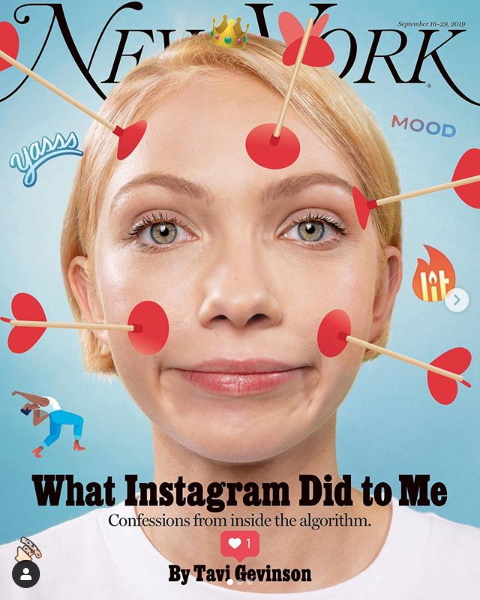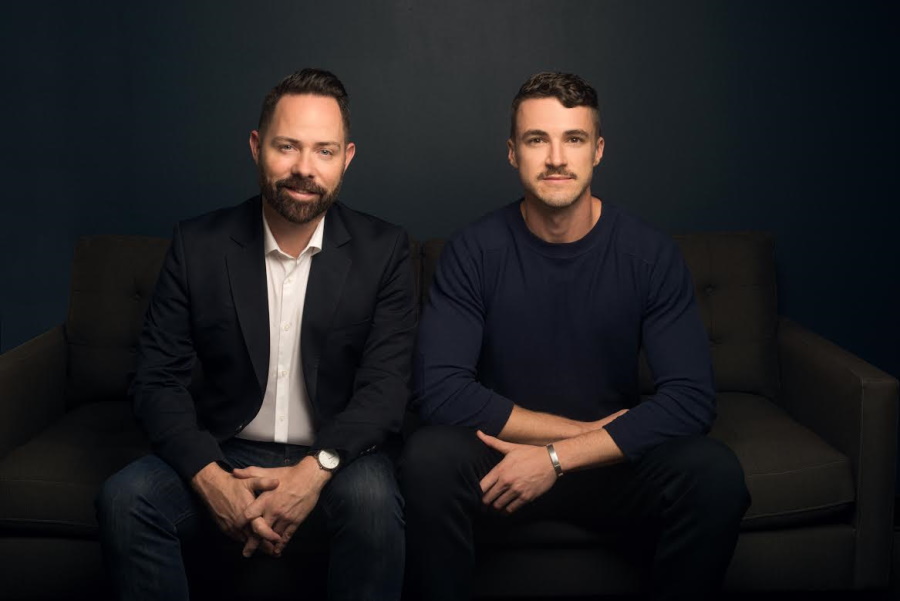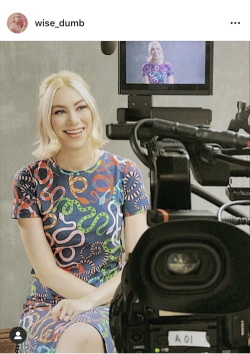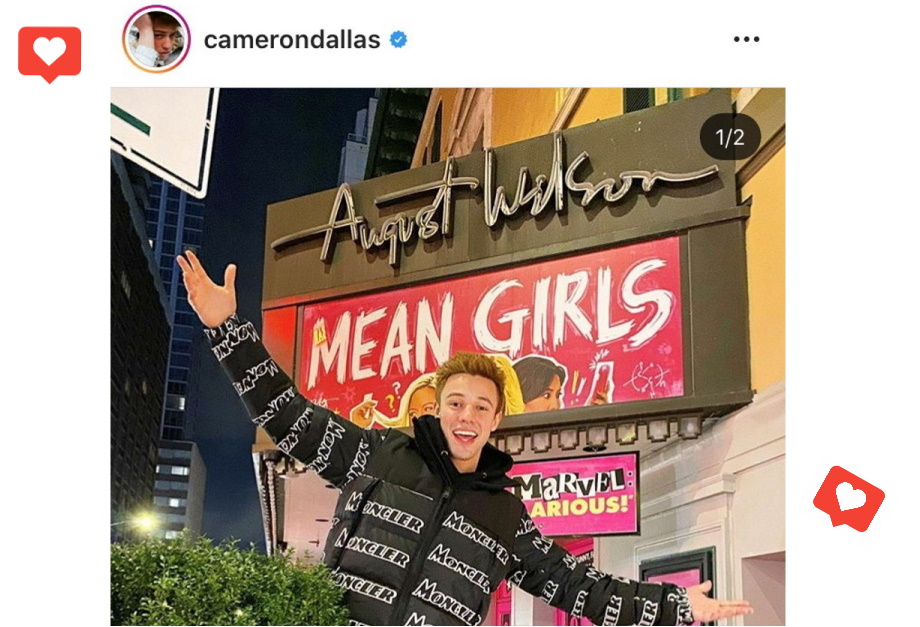On December 20, Mean Girls announced that Cameron Dallas would be joining its Broadway company as heartthrob Aaron Samuels for a limited four-week run. Press outlets scooped up the story, Dallas was trending on Twitter—and I had no idea who he was.
Usually when replacement casting is newsworthy enough to land in theatre outlets, I recognize the announced performer from this TV show, that hit film, or an iconic, Tony-nominated stage turn. Dallas defied each of those traditional qualifications, as he is instead famous as part of a culture that even I, a card-carrying millennial, often feel is a foreign country: Dallas is a wunderkind of the internet, a celebrity from YouTube, Instagram, the (the now-defunct) Vine, and beyond.
Capitalizing on Dallas’s following—more than 40 million strong across various platforms—is a strategic move for this teen musical with a decidedly younger audience base. Is there a point in the foreseeable future when an actor’s hireability might become less about their talent in the audition room and more about their number of online followers?
“Instagram is absolutely shaping the theatre industry,” says Jay Armstrong Johnson, who recently played Raoul in Phantom of the Opera on Broadway. Johnson notes that Instagram has become “a necessary app, a connecting device” not just for fans and those without access to the arts, but also “to other artists, which has often led to new projects and/or collaborations.”

In her September New York magazine essay about how Instagram has transformed her life and career, actor and blogger Tavi Gevinson echoed Armstrong’s sentiment. “Without Instagram, it’s possible I wouldn’t have gotten the acting job that moved me to New York,” she wrote.
In turn, directors and casting directors are using social media to seek talent.
“In the reading or workshop phase, I’ve used Instagram as a tool in casting in the past,” says Sammi Cannold, who is directing Celine Song’s upcoming Endlings at New York Theatre Workshop. Cannold has tackled a number of readings where social media has proved helpful in the casting process. “I rarely get to audition performers, so I end up hiring those I know or those who are recommended to me,” she says. “In both cases, I tend to need reference material in order to make hires. If a performer doesn’t have content on YouTube, Vimeo, or a personal website (which I strongly recommend), but I feel they’re right for the job, I turn to Instagram in hopes that there might be something that could demonstrate as much to my collaborators.”
Benton Whitley, company partner at Broadway casting agency Stewart/Whitley, echoes Cannold, and clarifies further: It’s about quality, not necessarily quantity.
“When we say actors should have a strong presence on social media, we mean they should have a helpful presence,” says company partner Benton Whitley. “That doesn’t mean I want their numbers to be high, but for them to have good material that is representative of their skills. Instead of Googling, one of the first things we do now is go on Instagram or YouTube. We’re looking for material that helps us understand where they fit in the landscape of what we’re casting, not whether they have 100,000 followers.”
When it comes to celebrity casting, though, the game differs. “We do a lot of star casting for Chicago, Rock of Ages, and other shows,” says company partner Duncan Stewart. “When those types of producers want butts in seats, yes, they ask about followers. Erika Kayne [now Roxie in Chicago] has 1.9 million followers; that makes a difference. For the working actor, the Broadway actor, we care less about numbers.”
That hasn’t stopped publications from sharing tips to for actors to increase their followings. Over the past three years, Backstage magazine, a chief outlet for casting opportunities, has published a number of articles about helpful social media habits, including “How to Become Instagram Famous,” “What Every Actor Can Learn from Kiernan Shipka’s Instagram,” “Six Instant Instagram Improvements for Actors,” and “How Actors Should Use Instagram, According to Casting Directors.” Is the brave new world here?

But while Instagram may boost an actor’s visibility, not all casting directors see the app as a universal panacea. “If social media comes naturally to actors and evolves organically from a place of enjoyment or creative expression, then great, but ‘inauthentic’ efforts at creating an online presence generally feel just that—inauthentic,” says Paul Davis of Calleri Casting.
This can be difficult advice to take—or at least paradoxical, given that so much of acting requires vulnerability for an audience who will not be recording them. In turning the camera onto themselves, actors inevitably invite questions of genuineness.
“I’m a bit of an introvert,” says Vanessa Kai, currently in Noah Diaz’s Richard & Jane & Dick & Sally at Baltimore Center Stage. “I’ve had to learn what kind of relationship I was comfortable having with Instagram, and by extension, with the people who view my account. It is a balancing act. It can be a challenge to maintain the energy to consistently participate and post while also being creative and engaged in my professional and personal life.”
Yet without frequent engagement and self-promotion, performers can get caught wondering if opportunities are passing them by. “I’ve been an observer to casting announcements of actors with lots of followers and not a lot of résumé credits or training; that’s always fishy to me,” says James Cusati-Moyer, who just finished his run in Jeremy O. Harris’ Slave Play on Broadway. “I know really talented, hard-working friends that have lost jobs to more ‘famous’ people.
He is quick to add: “But I think everyone should use Instagram however they want to. I view it as a mood board. A visual diary of one small glimpse of my personality. Online. Therefore, inherently not real. My face and body and voice and heart in front of someone else is real. I think it gets tricky when people rely on it and it governs their mental health—I hate feeling like a robot to the app.”

Madeline Wise, who recently appeared in Kate Attwell’s Testmatch at American Conservatory Theater in San Francisco, often weighs the benefits of posting on social media. “I have talked to my therapist so many times about how poisonous Instagram can be, but in the same conversation we discuss that it has become an essential tool for me as an actor and that I shouldn’t quit it,” she says. “My relationship to it goes through phases—sometimes I have a fun and care-free attitude about it, and sometimes I spend more time than I’d care to admit scrolling through my photos to find something to post because I feel like I haven’t ‘touched’ my followers in a while.”
Love it or fear it, Instagram and the ways to wield it are already being taught to aspiring actors at the undergraduate level. Jamie Lowenstein studied performance and graduated this past spring from Pace University in New York City. “My Business of Acting professors spent a good deal of time talking about Instagram,” explains Lowenstien. “The one tip I found helpful was to think about your various ‘types’ that might make you immediately interesting to casting, and to consider cultivating your posts to emphasize those types. I was also told to make other interests clear, so that we come off as more human.”
Highlighting abilities that might not always get seen in audition rooms is a key advantage of cultivating an online presence. Social media provides a platform to showcase special skills that are usually relegated to the bottom of a résumé . This is something Jonathan Hoover has taken advantage of—he’s also known by his quasi-alter ego @inappropriatepatti. Standing in his bathroom in homemade costumes, Hoover records himself imitating Patti LuPone singing showtunes. It’s something he did mostly for fun, but he’s starting to notice how it’s affecting his professional opportunities.
“It has put my name in people’s brains,” says Hoover. “My next gig is with a company I worked at years ago, and they called me out of the blue to come play a part. No audition needed. And I honestly think it’s because my videos have been in their feed enough that I just came to mind.”
Such practices can be advantageous to stand out in the competitive New York market. But in other parts of the country, perceptions around Instagram and its necessity seem to differ.
“I don’t have an active Instagram presence, nor have I ever been asked about my Instagram in an audition,” says Allie Freed, an Equity membership candidate who, after living in Portland, Maine, has relocated to Chicago for more artistic opportunities. “I’ve put a lot of time and work into maintaining my website, and that’s the tool I use most frequently to promote my work,” she says. “I have thought about whether I should be using Instagram more actively as an artist, and there is some guilt that comes into play that I’m not doing enough to ‘hustle’ or ‘self-promote. I’ve just never found social media to be an accurate representation of life and/or the human experience, so I try to steer clear.”
When I posted about this topic in Bay Area Theater Folks, a Facebook group for artists in California, responses were similar to Freed’s: Creatives in regional markets seemed to be surprised by the notion that Instagram could carry such weight. This may speak to a stronger sense of community in smaller cities. When I was a performer in the Bay, it didn’t take long to get to know the other people in its theatre circle. In more intimate scenes, Instagram’s gravity might be less acute.
That’s something Alanna J. Smith is considering as she leaves for New York from Philadelphia, where she’s performed in a number of productions at Walnut Street Theatre. “Industry professionals have told me that if they can’t quickly find my online presence, then I don’t exist,” she says. “And Instagram seems to be the platform that encompasses it all. I can post a video of me singing and playing piano and #actorslife, and if you see that you’ll subconsciously say, ‘She’s a relevant, working actor.’ There have been times when I’ve committed to growing my following with hopes of capitalizing on that very sentence, and it’s exhausting. For me it feels like a full-time job. But it feels necessary in the New York market, so I try to make sure @alannajsmith represents me well at first glance, and promotes work I’m proud of. And if it helps theatre lovers connect a little more, then I’m all for it.”
Such connections are vital for theatre artists to support their fans—and each other. Perhaps the most reflective content they can offer, then, is not the idea of what their career is, but a tapestry of all the mishmash elements that make a life in the theatre.
Billy McEntee is a freelance arts journalist who has written for Vanity Fair, The Brooklyn Rail, and Them, among others.





